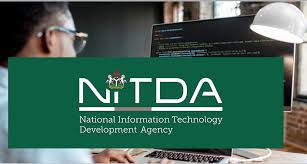
President Bola Ahmed Tinubu has formally requested the House of Representatives to approve a fresh $2.35 billion external loan to help finance part of Nigeria’s 2025 budget deficit and refinance the country’s maturing Eurobonds.
The President’s request was contained in a letter addressed to the Speaker of the House, Tajudeen Abbas, and read on the floor of the lower chamber on Tuesday.
In the letter, Tinubu also sought legislative approval to issue a $500 million debut sovereign sukuk in the International Capital Market (ICM)—a move aimed at funding critical infrastructure projects and broadening Nigeria’s financing sources.
The President explained that the borrowing plan aligns with Sections 21(1) and 27(1) of the Debt Management Office (Establishment) Act, 2003, which mandate parliamentary approval for new external borrowings and refinancing initiatives.
According to the breakdown, the loan package includes $1.23 billion (₦1.84 trillion) already captured in the 2025 Appropriation Act to partly finance the budget deficit, and $1.12 billion to refinance a Eurobond maturing on November 21, 2025.
“The Federal Government has recorded significant success in issuing Sukuk in the domestic capital market to fund key infrastructure projects,” the letter stated. “Between September 2017 and May 2025, the Debt Management Office (DMO) raised ₦1.39 trillion through domestic Sukuk to support critical road infrastructure projects nationwide. Now, there is a need to complement these efforts with external funding to bridge infrastructure gaps and diversify our investor base.”
Tinubu emphasized that the proposed borrowing will be sourced through Eurobonds, loan syndications, or bridge financing facilities, depending on market conditions.
He noted that pricing for the Eurobonds is expected to align with Nigeria’s existing yields in the international market, which currently range between 6.8% and 9.3%, depending on maturity.
On the proposed $500 million sovereign sukuk, the President explained that the initiative is designed to attract a more diverse pool of investors, deepen Nigeria’s sovereign securities market, and fund critical infrastructure across the country.
If approved, this would mark a significant step in the Tinubu administration’s efforts to leverage global capital markets to plug fiscal gaps and drive infrastructure development amid tightening domestic financing conditions.



